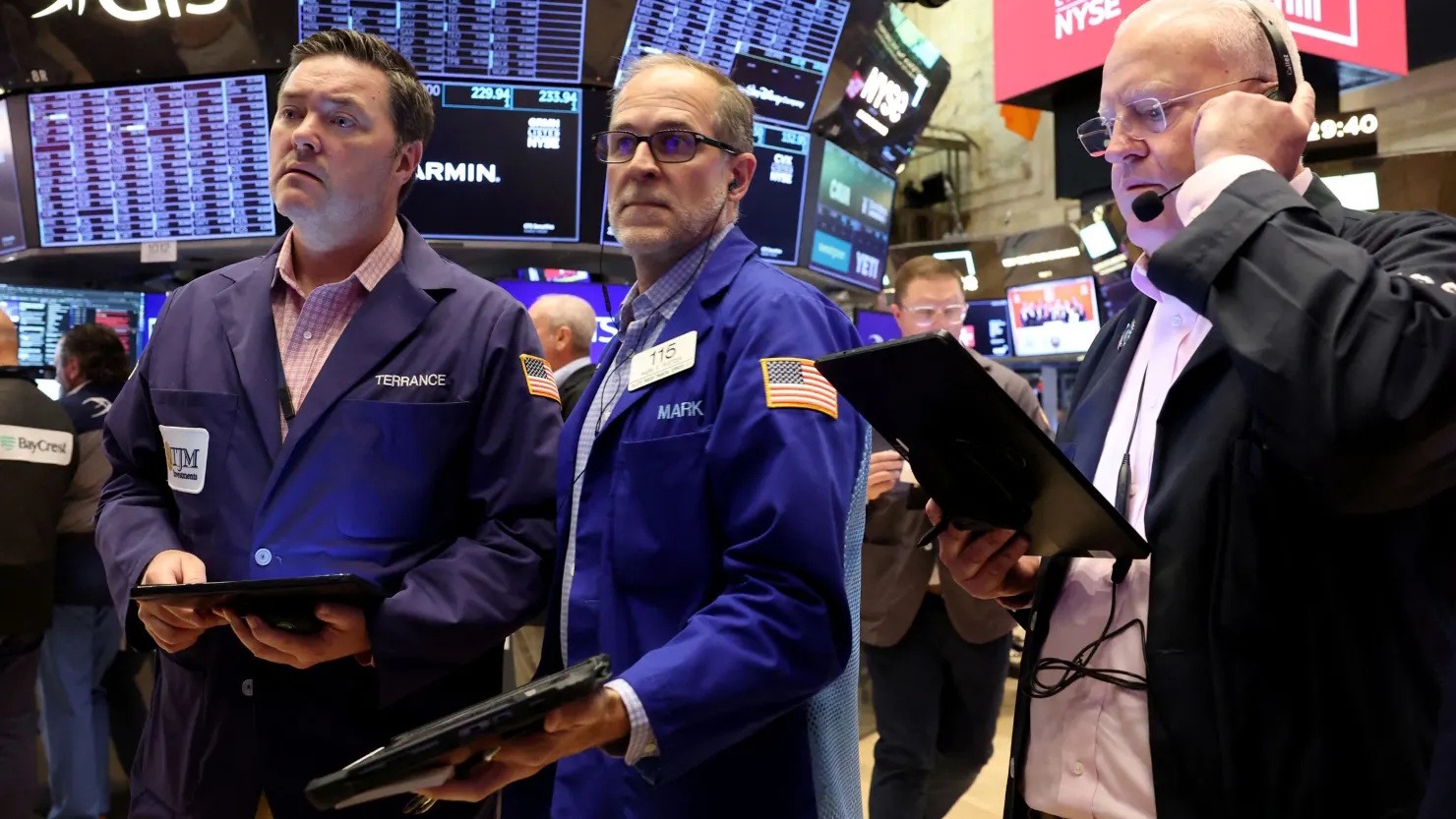
White House hails the accord, which will cut U.S. tariffs on Japan below President Donald Trump’s announcement, “massive.” After the bell, Alphabet and Tesla will lead a corporate earnings parade. Texas Instruments shares fall after its quarterly earnings prediction disappoints investors.
A new trade agreement between the U.S. and Japan that lowered tariffs on Japan lifted U.S. stock futures on Wednesday. Dow futures rose 137 points 0.3%, S&P 500 futures 17 points 0.3%, and Nasdaq 100 futures 26 points 0.1% by 03:38 ET. The main Wall Street indexes were neutral after trade on Tuesday as investors analyzed new corporate earnings. After General Motors reported a more than a third drop in second-quarter income, mostly owing to a $1 billion tariff cost, its shares fell. Still, optimism about AI spending supported certain mega-cap tech stocks. This enthusiasm will be tested later today when Google-owner Alphabet and Tesla disclose their latest results. Traders were also watching trade developments, especially with Trump’s “reciprocal” tariffs set to take effect on August 1.
Trump said his government reached a “massive deal” with Japan to impose a 15% tariff. The president said Japan will invest $550 billion in the U.S. and “receive 90% of the Profits.” Japan will allow trade in cars, trucks, rice, and other agricultural products. Trump tweeted, “Japan will pay 15% Reciprocal Tariffs to the US.” After reports that Japan’s senior trade negotiator, Ryosei Akazawa, met Trump in the White House on Tuesday, the arrangement marked one of the most significant preliminary trade pacts since Trump announced his increased global levies in April. The 15% duty is lower than Trump’s 25%, but it still violates Tokyo’s demand that Japan be spared from all U.S. duties. Capital Economics analysts wrote to clients that the U.S. trade pact announced today removes a big downside risk to Japan’s economy. “We estimate that the net effect of today’s announcement will be a reduction in the average tariff rate faced by Japanese exporters in the U.S. of around one percentage point.”
Alphabet and Tesla results are also being watched due to Trump’s trade policy. The two IT giants will be the first of the “Magnificent 7” to disclose their second-quarter results. Alphabet’s AI initiatives will be closely watched by analysts after the search giant recently backed large AI investments. Investors may want to see how the company is utilizing the money to defend its search and advertising division from AI competitors. “For Google, sentiment is very mixed, with bears worried about the secular outlook for search as AI chatbots capture share and regulatory / legal pressures while bulls emphasize compelling secular tailwinds in many key markets and a relatively cheap valuation,” Vital Knowledge said in a note. Tesla will be scrutinized as it battles rising competition that has hurt auto sales. Analysts warn that Trump’s July 4 fiscal measure abolished solar and electric vehicle tax benefits, which might hurt deliveries. Tesla expects to generate additional revenue from its robotics and autonomous driving aspirations. Vital Knowledge analysts said expectation of new partnerships has kept Tesla shares “beyond where it should trade based exclusively on auto fundamentals alone.” Tesla stock has fallen almost 12% this year.
Texas Instruments announced stronger-than-expected second-quarter results due to industrial demand, but shares fell in extended hours trading as investors worried about its analog chip unit. Revenue surged 16% to $4.45 billion, meeting its high guidance and beating analysts’ estimate of $4.35 billion. Its earnings per share were $1.41, including a 2-cent benefit not expected. Revenue rose 9% sequentially due to a “continued broad recovery” in its industrial division. Quarterly net income was $1.30 billion. Texas Instruments estimates third-quarter revenue of $4.45 billion to $4.80 billion and EPS of $1.36 to $1.60. According to LSEG statistics published by Reuters, analysts expected $4.59 billion in revenue and $1.49 in EPS. Although the group is not directly affected by Trump’s tariffs, chip fabrication tool costs have increased, causing some end customers to cut expenditure. CEO Haviv Ilan cautioned in a post-earnings call that levies and geopolitics are “disrupting and reshaping” global supply chains, making its automotive business recovery “shallow”.
Gold prices plummeted after the U.S.-Japan trade deal increased risk appetite and weakened its safe-haven appeal. The yellow gold was less than $100 off an April record high as investors worried about Trump’s trade penalties. Caution before a widely watched Federal Reserve meeting boosted gold, while the dollar retreated. By 03:38 ET, gold futures fell 0.1% to $3,440.70/oz and spot gold fell 0.2% to $3,426.80.
